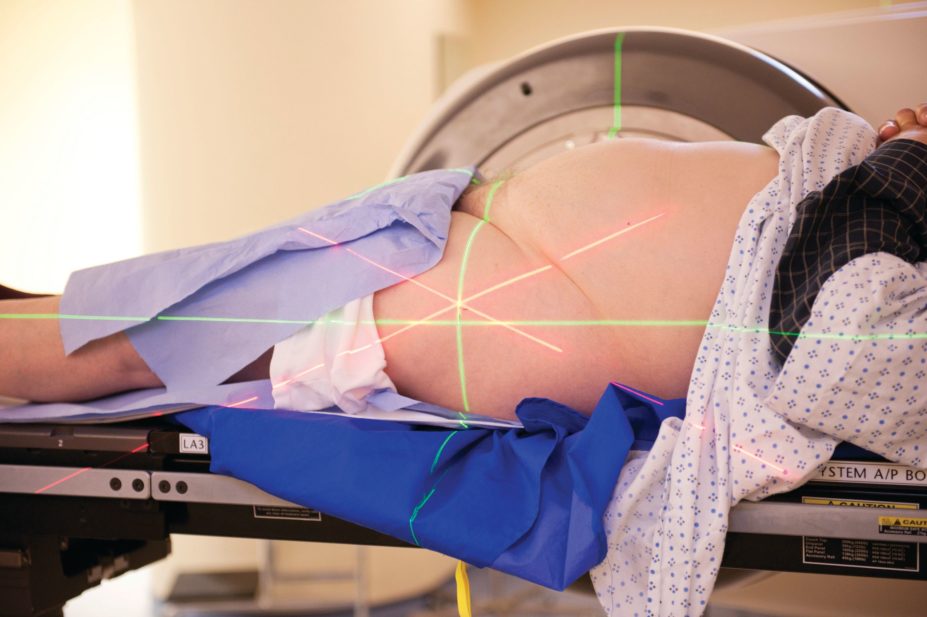
Science Photo Library
Researchers are investigating whether changing the dose and pattern of radiotherapy treatment could improve tumour control and reduce side effects in patients with localised prostate cancer, in a study led by the Institute of Cancer Research, London.
In a phase III randomised trial, researchers compared hypofractionated radiotherapy (hRT) – where each “fraction” is larger but there are fewer fractions and a smaller dose overall — with standard treatment. Patients attending 71 centres in the UK, Republic of Ireland, Switzerland and New Zealand (n=3,216) were included in the trial.
The results, reported to the European Cancer Congress 2015[1]
, showed that at five-year follow-up, treatment with hRT was as effective as standard treatment in terms of disease control and side effects. The researchers stated that the new dosing schedule appeared safe and effective, and could be recommended as a new standard of care.
References
[1] Dearnaley D, Syndikus I, Mossop H et al. 5 year outcomes of a phase III randomised trial of conventional or hypofractionated high dose intensity modulated radiotherapy for prostate cancer (CRUK/06/016): report from the CHHiP Trial Investigators Group. Abstract number: 8LBA. Presented at European Cancer Congress 2015.


